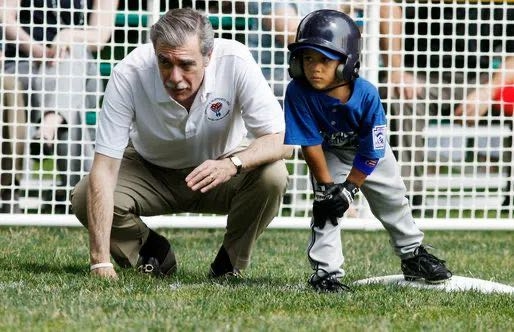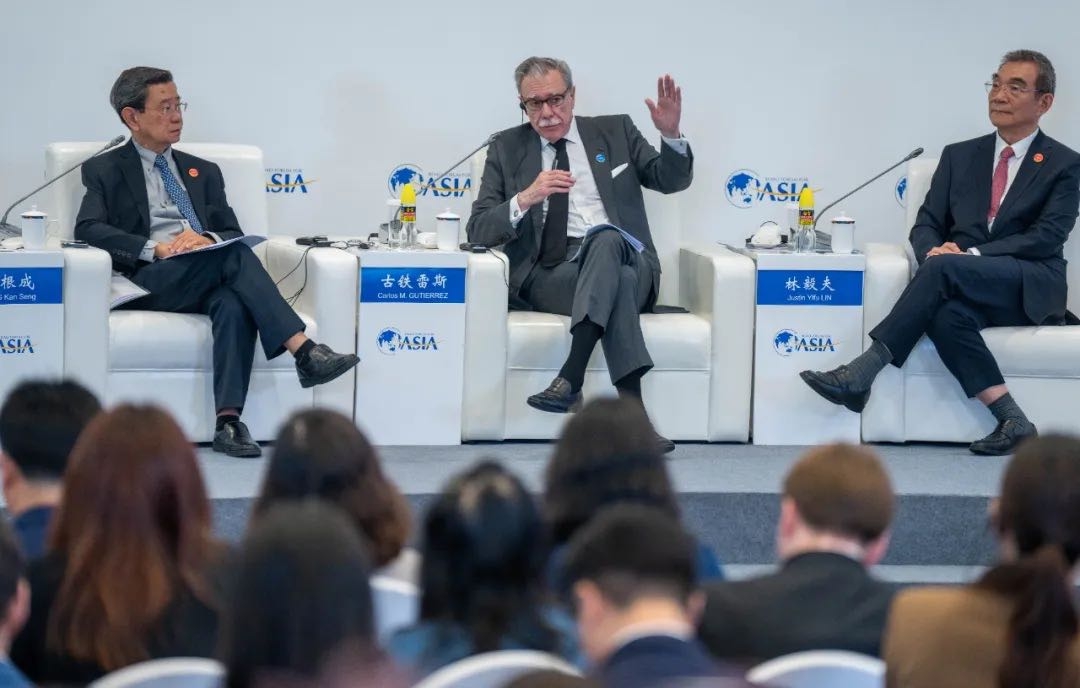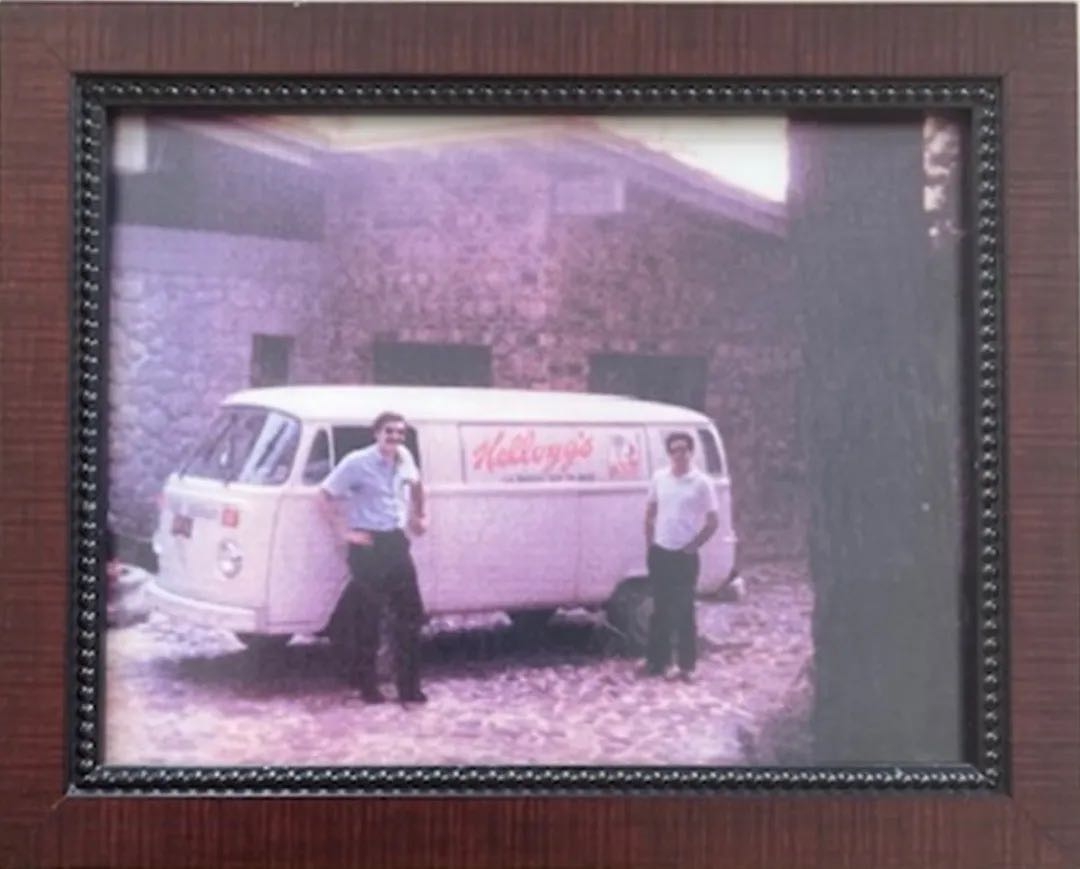 Carlos Gutierrez(middle)making a speech during the annual conference of the Boao forum for Asia 2024.
Carlos Gutierrez(middle)making a speech during the annual conference of the Boao forum for Asia 2024.
:Born in 1953 in Havana, Cuba, he immigrated to the United States in 1960, joined the U. S. food giant Kellogg's in 1975. He became general manager of Kellogg's Mexico in 1984. In 1999, he became the president and CEO of Kellogg's. In 2005, he became the U. S. Secretary of Commerce. He finished his term in 2009. He was elected as a director of the Boao Forum for Asia in 2018.
In an exclusive interview with Global People Magazine in Boao, Hainan, former U. S. Commerce Secretary Carlos Gutierrez said he first realized the cultural differences between the U. S. and China because of a box of cornflakes.
Gutierrez first visited Chinese soil in 1992 when he came to China to explore the market as a senior executive of the U. S. food giant Kellogg's. At that time, Kellogg's'top products were breakfast cereals and cornflakes, “But we there wasn't a lot of market research, but we were selling breakfast that was cold, crunchy, and sweet. But the Chinese breakfast was hot or warm, savory, and soft. So exactly the opposite. ”This is when Gutierrez realized they needed to improve their product to fit in the Chinese market.
This small“setback”was the beginning of Gutierrez's relationship with China. In the next 30 years, being both a successful businessman and statesman, he has done a lot to promote the economic and trade cooperation between China and the United States.
From an immigrant boy who didn't speak a word of English to a high-ranking official in the U. S. government, from the youngest CEO of a century-old food giant to an old friend at the Boao Forum for Asia, Gutierrez has had a life rich with stories. Although the relationship between China and the U. S. is full of challenges today, he still says that"the U. S. and China are destined to be friends".
 Carlos Gutierrez(middle)making a speech during the annual conference of the Boao forum for Asia 2024.
Carlos Gutierrez(middle)making a speech during the annual conference of the Boao forum for Asia 2024.
During the interview, Gutierrez still exudes the amazing youthful vigor. Over the decades, he has lived and worked in many countries. But no matter where he has been, he has always had two constant hobbies in his life: playing baseball and making friends. He once said joyfully that because he wasn't born in the United States, he doesn't see"becoming the President of the United States"as his life's goal. Instead, His goal is to"make more friends and be a team player".
Gutierrez has been to China many times. He is deeply impressed by Chinese people's hard work ethic and intelligence. He told the reporter that when Kellogg’s first built a factory in China, there were many American engineers in the factory. But soon, Chinese engineers mastered the technology and skills for production, "And then over time, the Chinese essentially ran the factory. We didn't need to have American engineers. But there were just some great memories. It was during that time that I made many good friends".
As Gutierrez makes more Chinese friends, his knowledge of China also becomes deepened: "Chinese and Americans have a lot in common. Our people are hard-working, kind, family-oriented, and welcoming. And I think that's what has enabled me to find so many people who I relate to. I have made lots of friends that last for life in China. "
Gutierrez said that what impressed him in his interactions with Chinese friends was the Chinese people's knowledge and attention to history: "China has a very long history, and the Chinese people know their own history and study their own history. In conversation, they can casually talk about historical figures from hundreds of years ago. In my eyes, this kind of knowledge of history is the thing that united China. "
He talked about the history of interaction between China and the U. S. : "During World War II, when Japan invaded China, there were many Americans who came to China and fought side by side with the Chinese people during that difficult period. There have been times when the relationship between China and the United States has gone back and forth, but we don’t have a history of animosity. The Chinese word'America'means'beautiful country'and many Americans know that'China'means'central kingdom'. There are a lot of examples throughout history when we have been working together, way more than examples when we have been separate."
Gutierrez's relationship with Boao runs deep. Back in 2010, he attended the Boao Forum for Asia for the first time. In 2018, he was elected to a new term as a member of the Board of Directors of the Boao Forum for Asia. He said, "Every time I come to Boao, I come with an attitude of learning. Asia today contributes more than half of the world's economic growth. In Boao, I have gained a deeper understanding of both the economic and trade activities and innovations behind this growth. Boao Forum is a forum for Asia, to understand Asia, and to unite Asia. But that doesn't mean that people from other countries will be excluded. I hope to see more Americans come to the Boao Forum, and hopefully, I can contribute to the exchanges at the forum. "
On March 26, the first sub-forum of the Boao Forum for Asia's 2024 annual meeting was held. At the meeting, Gutierrez called for continued globalization within the WTO framework. He emphasized that trade protectionism does not serve the purpose of"protection"and that only active global trade can ensure sustainable economic prosperity for all countries. He argues that since China joined the WTO, the world has witnessed the peak of globalization. During that period, the global GDP has maintained its growth trend, and the inflation rate of all countries has been generally reduced. This shows that globalization has done more good than harm to the development of the economies of different nations.
Gutierrez's keen sense of the global market isn’t baseless. He was a legend in American business long before he became the secretary of commerce and a board member of Boao.
From Salesman to CEO
Gutierrez once said that he has been influenced by three cultures-Cuban, American, and Mexican. He was born in Cuba, grew up in the U. S. , and started his career in Mexico.
In 1960, when he was less than seven years old, Gutierrez came to the United States from Cuba with his family. The first few months in the United States, the family crowded in a hotel room in Miami. Before coming to the United States, Gutierrez did not speak a word of English. He says that the first English word he learned was“rubber band”. A kind gentleman taught him this word when his father Pedro Gutierrez took him to work.
His father Pedro Gutierrez had many jobs, and Gutierrez spent his childhood moving. With talent and hard work, Pedro Gutierrez was eventually hired by the Mexican branch of Heinz, and the family moved to Mexico. 1977, at the age of 22, Gutierrez was hired by Kellogg’s. At that time, no one thought that this energetic young man would become the"savior of Kellogg’s"years later.
Gutierrez's first job at Kellogg's was driving a vending truck, selling the company's most famous product, frosted breakfast cornflakes, to retailers and residents. At first, he pursued a degree in business administration at the prestigious private Mexican university, Monterrey Tech when he was not working. But he soon decides to drop out. He realized that the real way of doing business was not in books.
Gutiérrez's colleagues say that Gutiérrez has an incredible depth of understanding, yet his articulation is so basic that everyone in an organization can do what he asks. In 1984, he became General Manager of Kellogg’s Mexico Branch. At that time, he is one of the few minority executives in the company. After taking office, he made bold reforms to make the Mexican plant one of Kellogg’s most efficient production bases in the world. He often came to the company in the middle of the night to chat with employees working the night shift to know what they thought. He is said to have been called a"folk hero"by many local employees.
 1975, Gutierrez(left)and his coworkers took a photo in front of their delivery truck in Mexico.
1975, Gutierrez(left)and his coworkers took a photo in front of their delivery truck in Mexico.
Speaking about his work ethic, Gutierrez once said, "I always felt I had to work a little harder or show a little bit more commitment than the average executives. It was something that drove me perhaps to work harder, to read more, to be a bit more curious about the world. "
Although he was doing a great job in Mexico, Gutierrez didn't want to stop there. After the Mexican branch was on the right track, he proposed to the company that he wanted to work in a more competitive Anglo country, and his boss asked him why he didn't go to the Latin American market. Years later, he realized what his boss meant: He didn't believe that as a Latino, he could lead non-Latino employees.
Later, Gutierrez even brought this up in a speech: "It's a good thing that I didn't realize what he meant at the time, or he could have convinced me. We must not fall into this kind of thinking. "
Gutierrez eventually proved that his boss's view was wrong. In the following years, he worked in Canada, Australia, and other countries, and then participated in the establishment of the Chinese branch of Kellogg's. In 1990, he was appointed executive vice president of Kellogg's, and in 1999, at the age of 46, he became the youngest chief executive officer of Kellogg's.
At this time, Kellogg's was in crisis. Sales of the company's key products, the breakfast foods, were getting weaker, and the stock price of the company had been falling for years. Some major shareholders were even thinking of selling the company. To turn the situation around, Gutierrez first made the decision to close one of Kellogg’s largest and oldest factories to improve production efficiency. Then, he put forward the"Volume to Value"strategy. He changed Kellogg's previous production strategy of focusing on breakfast foods and began to introduce a large number of energy bars, nut bars, snacks, and other high-margin products to meet market demand.
Gutierrez's strategy was a great market success. In just four years, the company's net sales grew by 43%and its stock price nearly doubled. Gutierrez became a business legend and was called"the man who fixed Kellogg’s".
"You can't let disagreements turn into animosity. "
In December 2004, President George W. Bush Jr. appointed Gutierrez as secretary of commerce, and in his appointment speech, Bush praised him for his management accomplishments at Kellogg’s, calling him"an effective and visionary executive".
In June 2005, after nearly six months in office, Gutierrez made his first visit to China as commerce secretary. Over the next year and a half, he visited China five times and participated in the first U. S. -China Strategic and Economic Dialogue.
Gutierrez said there were also arguments and disagreements between the two countries back then. "We always knew that we were getting closer that it was part of the experience. They say that you can't be a real friend unless you've had a fight or an argument. We had arguments, but we knew that we wouldn't take them personally as the attack of bad intent. "During his tenure, China and the U. S. have made progress on important matters such as intellectual property protection, exports of Chinese products to the U. S. , and U. S. investment in China.
On May 12, 2008, the Wenchuan earthquake hit China. On May 15, Gutierrez visited China. At the lunch of the American Chamber of Commerce in China, Gutierrez asked all U. S. business representatives for a minute of silence to moan the victim of the earthquake. Gutierrez said: "When I saw the Sichuan earthquake television images, It deeply saddened me. "He also said that if China(earthquake relief)needs, the United States is willing to provide assistance.
During his tenure, Gutierrez has brought a large business delegation along with him on every visit to China to look for investment opportunities. At the same time, he encouraged Chinese people to invest, travel, and study in the United States. He is also proud of the fact that the economic and trade relations between China and the United States have developed well during his tenure. When it comes to the changes in the relationship between the two countries in recent years, he expressed his concern: "Today, Chinese investment in the United States has greatly reduced, and the number of visitors to the United States and China has dropped dramatically. We need to find a way to get back on track. "
Gutierrez said many U. S. politicians lack a basic understanding of China, "we should do more to realize that China is never going to look like the US, and the US will never look like China. We need to recognize that and build a relationship based on that. We are going through a bad period right now, but this is not going to be forever. The world and China and the United States will continue to develop for the next 50, 100, 200 years, and we should learn to build a real and lasting relationship. "
In Gutierrez's eyes, as the world's two largest economies, misunderstandings between the U. S. and China will be costly: "Misunderstandings between two countries are dangerous, and I don't want rhetoric to become a reality. Some people say that we(the U. S. and China)are destined for confrontation. I don't believe that at all. "He said China and the United States are not enemies. "We compete, we disagree. That's all fine, friends disagree, but we should never let arguments turn into animosity. "
In June 2008, the first tour group of Chinese citizens to the United States arrived in the U. S. capital, Washington. Gutierrez boarded a yacht with Chinese officials to see the 260 Chinese tourists. He told reporters that people-to-people exchanges between the U. S. and China are extremely important: "It helps to understand the differences and similarities between our cultures and histories. This exchange is perhaps more important than anything else in advancing the relationship between the two countries. I wish Chinese and Americans would visit each other's countries more often and make some friends. I always say that if the Chinese see the United States as an unwelcome country, you wouldn't see so many Chinese students studying in the United States. In my eyes, this reflects China's friendship and respect for the United States. "
Gutierrez believes that"leadership"is the key to advancing the U. S. -China relationship: "There have been many outstanding leaders in U. S. history who have long seen the importance of China. From Nixon to Carter to the Bushes, these leaders understood that the U. S. -China relationship is perhaps the most important bilateral relationship in the world. Two of our former Secretaries of State, Dr. Kissinger and James Baker, have gone on to study Chinese history and to try to understand China. They know that the U. S. -China relationship is far more complex than simple expressions like'who loses and who gains'. "
Despite the difficulties, Gutierrez remains confident about the future of U. S. -China relations: "I believe we can see politicians like Nixon and Dr. Kissinger again, and we will get back to a place where we respect each other. There are many areas where the U. S. and China can work together, such as in the area of health, in the area of climate change, and the area of peacekeeping, and we can have a tremendous positive impact on the world. "
Before the interview ended, Gutierrez stressed: "I believe that our[China and the United States]destiny is to be closer, is to be friends, is to be collaborators, is to help develop a better world for everyone. When that day comes, I think it will be an era of peace and prosperity for the world. "


